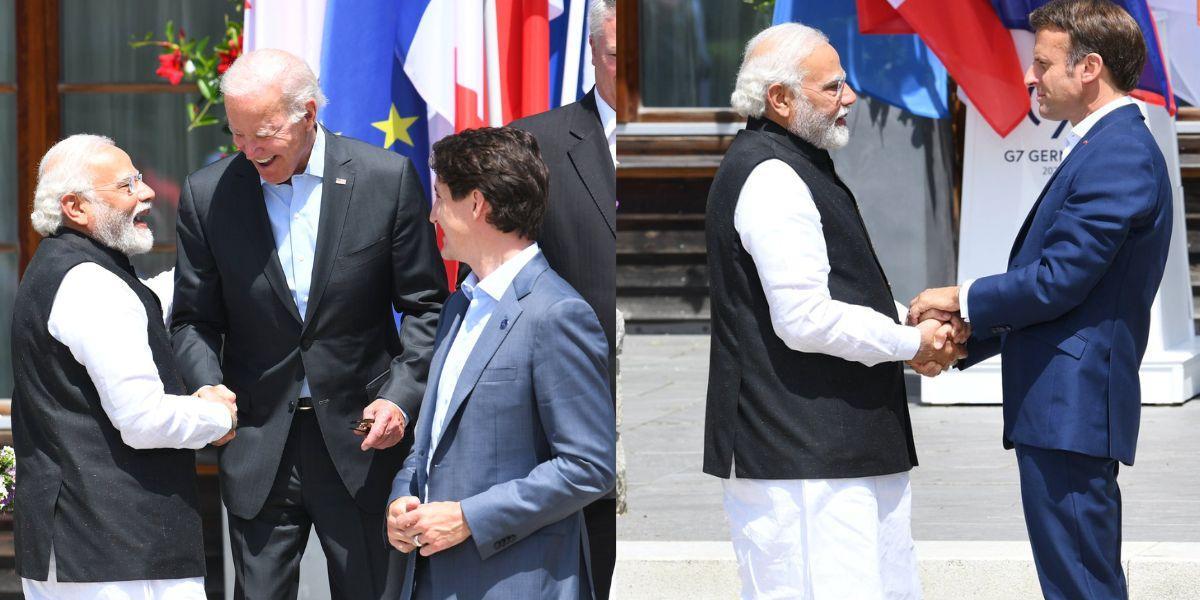The G7 summit was held from 26-28th June, 2022 in Schloss Elmau, Bavarian Alps, Germany. Members countries are the leading industrial nations of Canada, France, Germany, Italy, Japan, the UK and the US. There were special invitee countries from Asia, Africa , Latin America and Europena Union whose geopolitical significance is noteworthy in the preview of today’s global economy, politics, health and war and conflicts.
India has been a constant invitee in G7 summits since 2014 which shows the growing importance of India in the global stage as a geopolitical player.

G7 was formed in 1973 during the energy crisis when the finance ministers of the now member countries met to discuss a solution convened by the then US Secretary of Treasury George Shultz. The G7 is not based on any treaty and has no permanent secretariat or office. Its Presidency is on rotation among the member states. The institution holds significant international influence even when it does not have any legal or institutional basis.
India’s Geo-political position
India always maintained a ‘non-aligned’ strategy but took sides on policies as far as national interest was concerned since the Cold War between US and Soviet Union. This has been re-winded between US (NATO allies) and Russia with another major player in the equation; China. As such India’s involvement in the global politics has become an ‘indispensible’ factor.
Modi’s participation in G7 was on par with the prevalent regional and global uncertainties. India maintained a diplomatic ‘silence’ on supporting the Russian aggression and the Western sanctions on it. India was badly hit with the Ukraine war which took a heavy toll on the global energy market, triggering an international food crisis, disruption of the global supply chains that contributed to economic downturn and inflationary pressures. Hence in a bid to stay firm on safeguarding its national interest India has stayed away from any policies that might push it into a ‘compromised’ position.

India’s Importance in G7 Summit
As a ‘special invitee’, India can be seen as an important actor in the present geopolitical scenario. It is evident especially in the newly emerging Indo-Pacific construct where China’s economic and military expansion is ever growing.
India’s importance in world affairs lead to its active participation in several world organizations like I2U2, G-20, BRICS, QUAD, SCO, SAARC. This was projected during the G7 summit where Modi urged the countries to invest more in clean energy following which a 600 billion dollar infrastructure initiative was announced to help developing countries tackle climate change.
He also emphasized on women’s rights and their leading role in development along with highlighting the importance to ensure food security.
Modi held separate bilateral meetings with leaders of the summit on the sidelines like Argentina, South Africa and Indonesia in an attempt to strengthen South-South Cooperation. PM Modi also held talks with the E.C President Ursula von der Leyen on India-EU cooperation in trade, investment, technology and climate action welcoming negotiations on the trade, investment agreements.

The G-7 Summit served as an opportunity for both the West and India to strengthen their existing relations along with carefully tackling the ongoing geopolitical crisis across the globe. Indian neighbourhood has turned quite ‘turbulent’. Border dispute with China, economically ailing Sri Lanka, Afghanistan’s take over by Taliban and the Ukraine crisis added to the complexity of the situation and hence being a part of plurilateral platforms like the G7 is essential for India to maintain its greater geopolitical position.
Lastly, with growing importance of the Indo-Pacific with India at its pivot a peaceful, resilient geopolitical environment can only be achieved by engaging it in all spheres.

